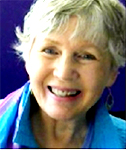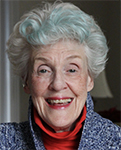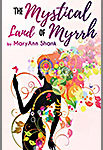Review | THE MYSTICAL LAND OF MYRRH by MaryAnn Shank (Somalia)
The Mystical Land of Myrrh (short stories)
MaryAnn Shank (Somalia 1967–69)
Dippity Press
February 2019
222 pages
$13.99 (paperback), $3.99 (Kindle), $13.97 (audiobook)
Reviewed by Eugénie de Rosier (Philippines 2006-08)
• • •

MaryAnn Shank Somalia (1967–69)
MaryAnn Shank has brought us a fictionalized tale of her time in Somalia, working as a teacher of middle-school children in the rural bush country of Baidoa.
The author was 50 years distant from her tour when she published The Mystical Land of Myrrh, and thanked those who refreshed her memory of life there.
The tantalizing use of the word myrrh drew me in, and how appropriate, as myrrh originates from the commiphora tree of Somalia.
The author unspooled her stories and vignettes with a goddess, and circled to the gripping end, when Moria, Shank’s narrator, beseeched Arawello to assist its women.
Teaching is an honored profession in Somalia. Peace Corps brought English to, and built schools in southern Somalia, five years before Moria’s arrival.
In The Mystical Land of Myrrh two teachers, Molly and Moria, instructed in English at Sheik Awes Middle School, to educate the country’s future community and national leaders, and prepare Somalia for success in international affairs.
English was vital to pass the Eighth Forum state exams. This let the country’s brightest eighth graders continue to secondary learning, and compete against other students nationwide for a seat in Somalia’s only high school.
Moira was drawn to her students’ interest, warmth, and respect. Her teaching progressed with the usual ups and downs of a volunteer working in a foreign country, and she gained an opportunity to teach English in the afternoons at the Catholic Orphanage for boys.
MaryAnn Shank tackled hard issues through her character of Moria. Her lesbianism endangered her potential Peace Corps acceptance, and strict Moslem traditions against homosexuality demanded caution. Moria respected Somalia’s culture and its deep faith in Allah, and delighted in accepting its generous hospitality. Her few attempts to find any tiny lesbian community or individual in Mogadishu failed.
The teachers witnessed cruel treatment of women by Somali men, sometimes done for sport, publicly, and these incidents raised Moria’s sober understandings about the country. Girls’ lack of opportunity to be educated cut short any hope of Somali women scientists or musicians, lawyers, or engineers.
English wasn’t the only subject necessary for Somalia to reach an effective level in the global community. Moria’s educational error, caused by her training as proctor and the Somali way of proctoring, initiated an uproar at the middle school, but it takes time for a foreigner to learn a new culture.
Genital mutilation of girls and the unrelenting cultural favoring of boys over girls, was routine. Also, the not-unexpected attitude of some male volunteers, who disparaged women volunteers’ behavior in-country — but seldom their own — was either tolerated or shouted down by the woman unjustly criticized.
Moira took the challenging, then wondrous weather in stride, and admired the fine people with whom she developed friendships. Omar and his family; Padre Vittorio and the nuns; a committed Russian doctor, who administered a life-saving drug to Molly, as her malaria temperature rose to 105 degrees.
The author prefaced many vignettes with a proverb, a local song’s chorus, a poem, a student’s translated story excerpt, religious quotes, a camel-watering chant, a Moslem prayer. These deepened our understanding of the Somali people, and exposed the talent of its writers. Shank’s writing was clear, but that clarity made her occasional use of bold font and repeated exclamations for emphasis unnecessary.
MaryAnn Shank captured what it meant to be a volunteer in a foreign country with its attendant fears, exhilarations, mistakes, and uncertainty. Her regard for the people was established by her wonderment at how much of her adult life has been influenced by what she learned in Somalia.
• • •
 Reviewer Eugénie de Rosier’s writing has appeared in the Huffington Post, Antioch Review, Big Muddy, Two Serious Ladies, Hurricane Alice and Sojourners, Ariel Chart International, and her commentaries have appeared in the Chicago Tribune and elsewhere. Eleven years as a State of Minnesota writer brought her numerous first-place awards from the National Association of Government Communicators. A former Norcroft Writers’ resident, her short story collection was a finalist in Holy Cow! Press’ only collection contest, 2018.
Reviewer Eugénie de Rosier’s writing has appeared in the Huffington Post, Antioch Review, Big Muddy, Two Serious Ladies, Hurricane Alice and Sojourners, Ariel Chart International, and her commentaries have appeared in the Chicago Tribune and elsewhere. Eleven years as a State of Minnesota writer brought her numerous first-place awards from the National Association of Government Communicators. A former Norcroft Writers’ resident, her short story collection was a finalist in Holy Cow! Press’ only collection contest, 2018.
She holds a BA and MA and is pursuing a publisher for an essay collection and a short story manuscript. An able athlete, de Rosier has swum Turkey’s Hellespont Strait, 2013; walked the 500-mile Camino alone from the south French Pyrenees across north Spain to its Santiago City/Atlantic Ocean terminus, 2016; received many gold medals in power-walk racing, 2019, 2021, and 2022 Minnesota Games. In 2011, she accepted a Distinguished Alumni honor, the Humanitarian Award, from the University of Minnesota, for her Peace Corps service in the Philippines, 2006-2008 as a small business development specialist. As requested by her community, Eugénie worked on an indigenous water development project in the mountains.

No comments yet.
Add your comment